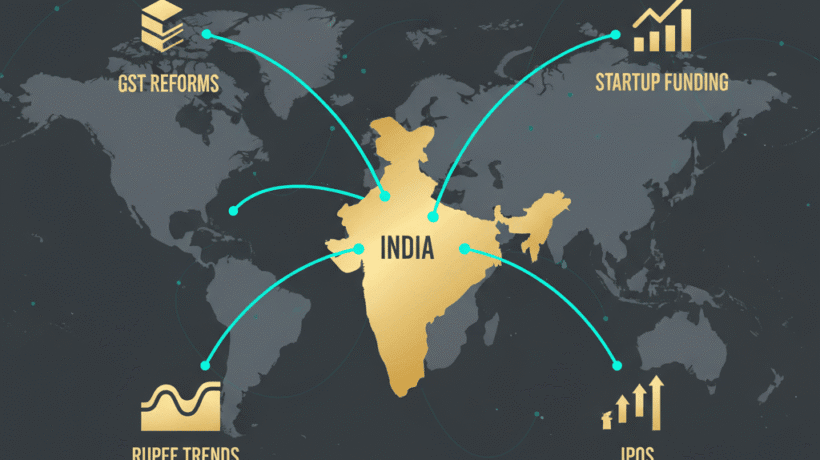India’s Global Business Moves: Cross-Border Acquisitions & Strategic Investments (October 2025)
India’s corporate giants continue to expand their global footprint through major cross-border acquisitions and partnerships in 2025. From auto and tech to energy and consulting, Indian companies are leveraging international assets to strengthen competitiveness and innovation.
Tata Motors Acquires Iveco Group’s Commercial Division
In a landmark move, Tata Motors acquired the commercial trucks and buses division of Iveco Group in July 2025. The deal enhances Tata’s European footprint and expands its EV-ready vehicle portfolio. Analysts view this as a strategic step toward becoming a global player in sustainable transport manufacturing.
Capgemini Acquires WNS Holdings for $3.5 Billion
In a surprise tech-consulting merger, Capgemini announced the acquisition of WNS Holdings Ltd. for $3.5 billion, strengthening its position in digital transformation and analytics. The deal combines Capgemini’s global consulting expertise with WNS’s deep domain strength in business process management — creating one of the largest digital operations ecosystems globally.
Schneider Electric Buys Temasek’s Stake in JV
Global energy major Schneider Electric finalized the purchase of Temasek Holdings’ stake in their joint venture, boosting its control in India’s growing smart infrastructure and energy management market. The acquisition aligns with Schneider’s vision of deepening roots in emerging markets driving green transformation.
Reliance Jio Acquires Leading Cloud Startup for $1.2 Billion
Reliance Jio has made headlines again by acquiring a major Indian cloud computing startup for over $1.2 billion in August 2025. The acquisition marks Jio’s entry into large-scale AI and data cloud services, competing directly with global tech giants. This deal positions India as a rising cloud innovation hub.
Why This Matters
These acquisitions highlight a powerful shift — Indian and India-linked enterprises are now buyers, not just targets, in global markets. With technology, energy, and mobility as focus sectors, India Inc. is clearly steering toward self-reliance and international dominance.
Conclusion
As cross-border M&A activity rises, so do compliance obligations — from FEMA approvals and FDI reporting to tax structuring and transfer pricing documentation.
✅ MeraCompliance helps businesses navigate these complexities seamlessly — ensuring full legal, tax, and regulatory compliance for every international move.
FAQ'S
1. What are cross-border acquisitions?
Cross-border acquisitions occur when a company from one country buys or merges with a company from another country. They help firms expand globally, access new markets, and diversify operations.
2. Why are Indian companies investing in global businesses now?
Indian corporations are leveraging strong capital reserves and favorable global valuations to expand internationally — particularly in technology, energy, and infrastructure sectors. This also aligns with India’s growing influence in global trade and innovation.
3. What are the key compliance requirements for cross-border M&A?
Companies must comply with FEMA (Foreign Exchange Management Act), FDI guidelines, tax laws, transfer pricing norms, and RBI reporting obligations. Professional compliance support is crucial for smooth execution.
4. How do such deals benefit the Indian economy?
Global acquisitions by Indian firms increase India’s market presence, bring back advanced technologies, and boost domestic employment and innovation potential.
5. How can MeraCompliance help in cross-border transactions?
MeraCompliance provides expert assistance in FEMA approvals, legal documentation, tax structuring, and RBI reporting, ensuring your international acquisitions remain fully compliant and strategically sound.





